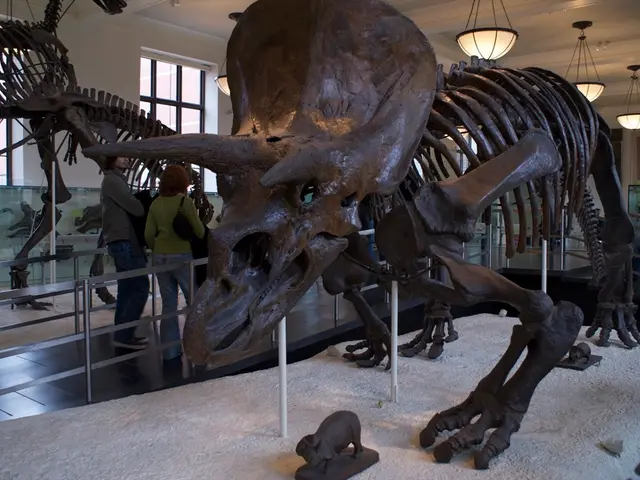Eurozone economy saw an uplift due to foreign labor in recent periods, affirms European Central Bank head
In recent years, foreign workers have made significant contributions to the economies of several European countries, particularly Germany. According to ECB President Christine Lagarde, foreign workers accounted for half of the labor force growth in the eurozone over the past three years.
Germany, which has experienced the largest growth of its workforce through immigrants from the EU, has seen a surge in highly qualified labour from countries like India. This trend has been a driving force behind the country's economic growth.
Christine Lagarde's speech at the U.S. Federal Reserve's annual symposium in Jackson Hole, Wyoming, highlighted the significant role foreign workers have played in the growth of Germany's GDP. She also suggested that without the contribution of foreign workers, labor market conditions could be tighter and output lower in the eurozone.
The European Union's population reached a record high of 450.4 million people last year, due in part to migration. This influx of foreign workers has provided a boost to the eurozone's economy. For instance, Spain's strong economic performance since the end of the COVID-19 pandemic is partly attributed to the contribution of foreign labor.
Meanwhile, in the United States, President Donald Trump's policies have taken a different approach. Trump has cracked down on unlawful border crossings and stepped up arrests of immigrants. Since his inauguration, he has stripped legal status from hundreds of thousands of migrants and placed restrictions on new arrivals in response to domestic discontent.
These policies have had an impact on the U.S. labor market. In Germany, however, the new government has suspended family reunification and resettlement programs, suggesting a similar shift in immigration policies.
Despite these challenges, the demand for foreign labor remains high. Christine Lagarde listed the rise in the number of workers from outside the 20 countries that share the euro as a factor supporting the bloc's economy. She also stated that without the contribution of foreign workers, Germany's GDP output would be around 6% lower than in 2019.
As both the European Union and the United States navigate the complexities of immigration, the role of foreign workers in their economies continues to be a significant factor. The impact of these policies on the labor market and the economy will be a topic of ongoing discussion and debate.








